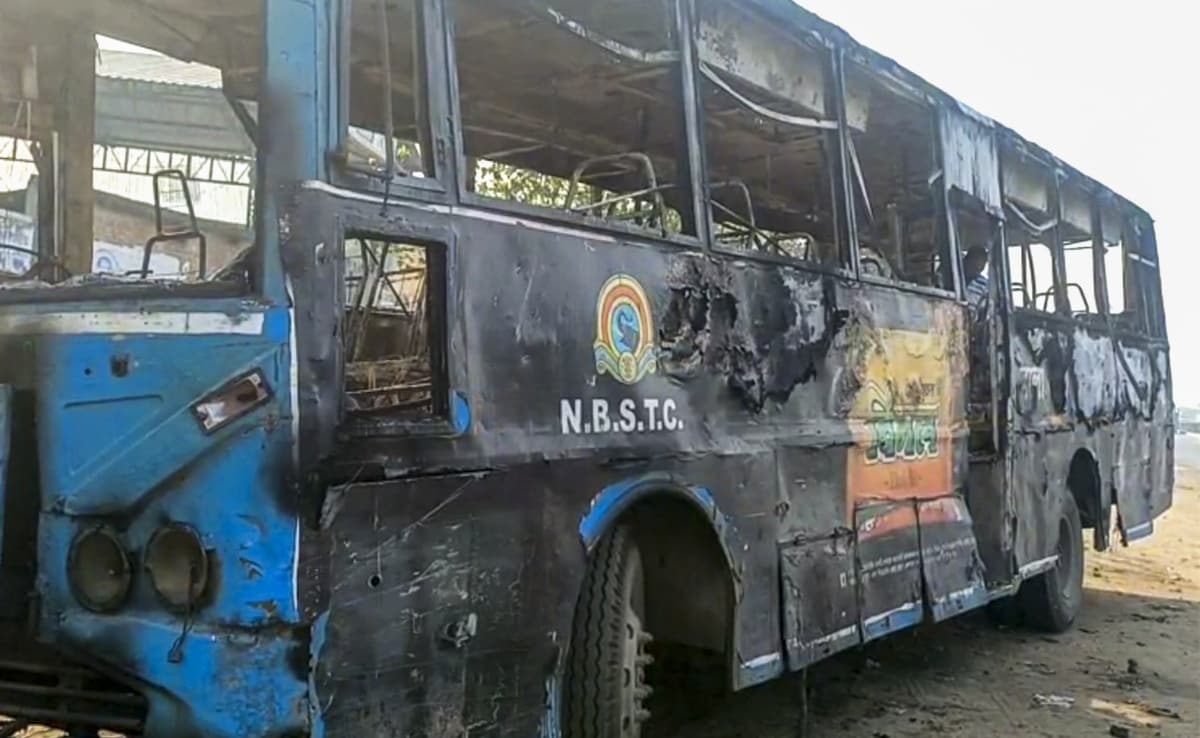Tragic Events Unfold in Murshidabad District as Tensions Escalate
In a shocking turn of events, three individuals have lost their lives in violent confrontations connected to the ongoing protests against the contentious Waqf (Amendment) Act of 2025 in West Bengal’s Murshidabad district. The incidents unfolded on Friday, escalating tensions in a region largely populated by the Muslim community. The police have reported that 118 people were arrested in connection with the violence that erupted during these protests, which have been simmering for several days.
The Waqf (Amendment) Act, which many in the community view as unjust, has led to widespread agitation and calls for peaceful demonstrations. However, the protests took a tragic turn, leading to fatalities and heightened unrest. Bengal Chief Minister Mamata Banerjee has declared a firm stance against this law, emphasizing her commitment to not enforce it within the state. In her post on X, she stressed, “We have made our position clear on this matter – we do not support this law. This law will not be implemented in our state. So what is the riot about?”
The Chief Minister’s statement comes amidst growing unrest across various districts of West Bengal, particularly in Murshidabad, where tensions have been high among protesters opposing the Waqf Act. Her insistence on peace and harmony underscores her concerns about the law being misused for political gain. She has urged individuals to seek clarity from the central government regarding the Act, as it was not formulated at the state level.
Escalation of Violence and Political Ramifications
The protests have seen widespread vandalism, with several vehicles, including police vans, being set ablaze. Security forces faced stone-pelting, and major roads were obstructed as violence spread beyond Murshidabad to neighboring districts like Malda, South 24 Parganas, and Hooghly. The Director General of Police, Rajeev Kumar, has issued a stern warning to individuals inciting violence, stating that the state police will not tolerate any disruptions to law and order stemming from these protests.
Political leaders have weighed in on the situation, further fueling the discord. State BJP president Sukanta Majumdar has called upon the Trinamool government to enforce stricter law enforcement in Murshidabad. He asserted that the BJP would handle such disturbances effectively upon returning to power, alluding to a broader narrative of appeasement and lawlessness under the current administration. In his remarks, he noted, “When the BJP comes to power in West Bengal, such vandalism by a section of minorities will be crushed in five minutes.”
Conversely, prominent Congress leader Rashid Alvi has placed the blame for the unrest squarely on the BJP, claiming that the violence is a direct result of the Centre’s interference in religious matters. Alvi’s viewpoint reflects a growing sentiment that the BJP’s policies are fuelling division and unrest within the state, instigating significant backlash against the central government.
The Political Landscape and Ongoing Protests
The Waqf (Amendment) Bill, which has been at the center of these protests, was introduced in the Lok Sabha and Rajya Sabha on April 2 and 3, respectively. Following its passage in both Houses and subsequent presidential assent on April 5, the legislation transformed into law, igniting a wave of opposition protests across the nation. These protests primarily target perceived injustices associated with the Act, fostering a sense of urgency among various community leaders and activists.
Amid these protests, the BJP has launched a “Waqf Reforms Awareness Campaign” aimed at elucidating the benefits of the new legislation to the Muslim community. This initiative, running from April 20 to May 5, seeks to balance the narrative and sway public opinion in favor of the Act. Despite these efforts, the protests reveal a deep-seated apprehension within sections of the community about the changes enforced by the central government.
As tensions continue to rise in Murshidabad and beyond, the focus shifts to the broader implications for West Bengal, where religion and politics intertwine in complex ways. MP Abhishek Banerjee, nephew of the Chief Minister, has also expressed concern, attributing the unrest to intentional acts aimed at disrupting Bengal’s harmony. His plea for peace resonates amid fears that divisive politics could escalate into further violence.
The escalating conflict not only threatens public safety but also raises questions about the governance and handling of regional unrest by the Trinamool Congress. The Chief Minister’s attempt to defuse the situation can be seen as a response to the scrutiny faced by her administration amid these protests.
What Lies Ahead for West Bengal and Its Communities
The events in Murshidabad are a stark reminder of how quickly peaceful protests can spiral into chaos. The tragic loss of life further complicates relationships among communities and political factions. As the protests continue, the question looms large: what are the long-term effects of these clashes on community relations and political stability in West Bengal?
With the state government maintaining a hardline stance against the Waqf (Amendment) Act, it remains to be seen how the central government will respond to the growing discontent. The opposition parties are already leveraging this unrest to challenge the ruling party’s mandate, thus adding another layer to the already complicated political landscape of West Bengal.
As per the report by The Hindu, local authorities are now tasked with restoring order while addressing the grievances of the protesters. The situation calls for measured responses that respect the right to protest while ensuring public safety.
In closing, the tragic events in Murshidabad serve as a call to action for not only state and central governments but also community leaders. The path forward requires dialogue, understanding, and a commitment to peace to navigate the turbulent waters of political and social change in West Bengal. It is imperative for all stakeholders to engage constructively to avert further violence and foster an environment conducive to healing and unity.
DISCLAIMER
We have taken every measure to ensure that the information in this article and on our social media platforms is accurate, verified, and obtained from reliable sources. For feedback or complaints, please contact us at info@hamslive.com.


